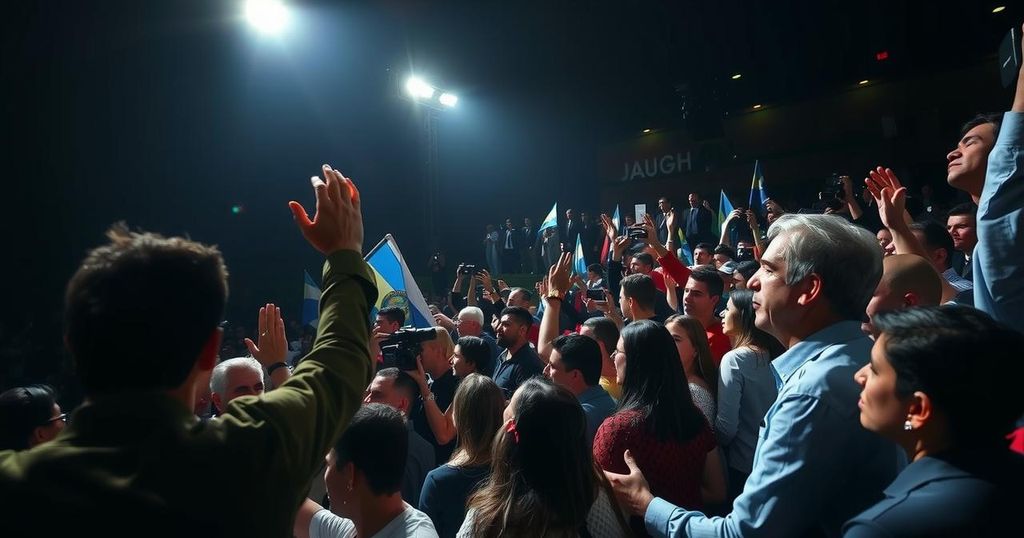Uruguay’s presidential runoff has emerged as a fiercely competitive race between Álvaro Delgado of the National Party and Yamandú Orsi of the Broad Front, amidst concerns over crime and economic policies. Current polls indicate a tie, with an undecided voter base critical to the outcome.
Uruguay’s presidential election has transformed into a highly competitive runoff, pitting the conservative National Party’s Álvaro Delgado against the leftist Broad Front’s Yamandú Orsi. Following the October 27 vote where Delgado captured 27% and Orsi secured 44%, the race escalated as both parties vie for undecided voters. Recent polls suggest a near tie as they grapple with prevalent concerns over crime rates and economic strategies, reflecting a restrained yet intense electoral atmosphere shaped by voter indecision on pressing issues, notably tax policies and social spending.
In October 2024, Uruguayans engaged in the first round of a presidential election that resulted in no candidate achieving an outright majority. This led to a runoff scheduled for November 24, 2024, between incumbent National Party candidate Álvaro Delgado and Broad Front candidate Yamandú Orsi. The country has seen significant social changes under previous Broad Front governance, including the legalization of abortion and same-sex marriage. The current political climate is marked by a unique lack of populist sentiment, with the election discussing primarily fiscal matters rather than polarizing democratic concerns seen elsewhere.
In summary, Uruguay’s upcoming presidential runoff reflects a closely contested political landscape, with candidates focusing on the economy and crime to attract undecided voters. Despite earlier expectations of a dull election, the current scenario harbors high stakes for both the National Party and the Broad Front, signifying a critical juncture in Uruguay’s democratic process.
Original Source: apnews.com






